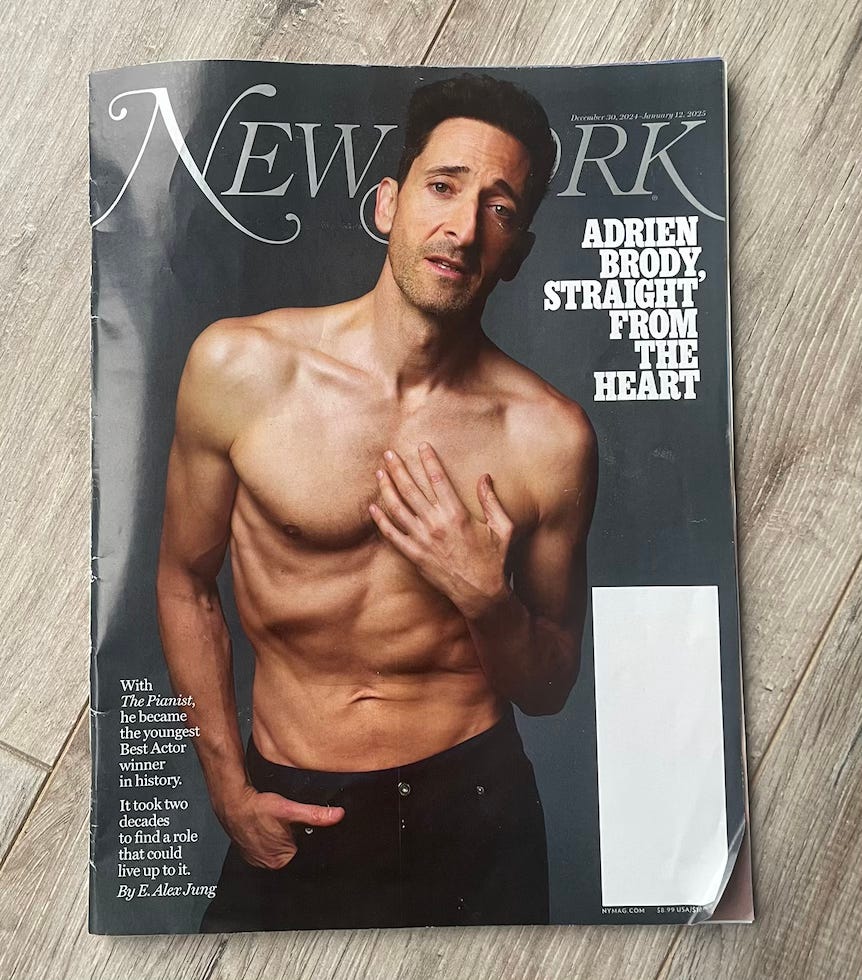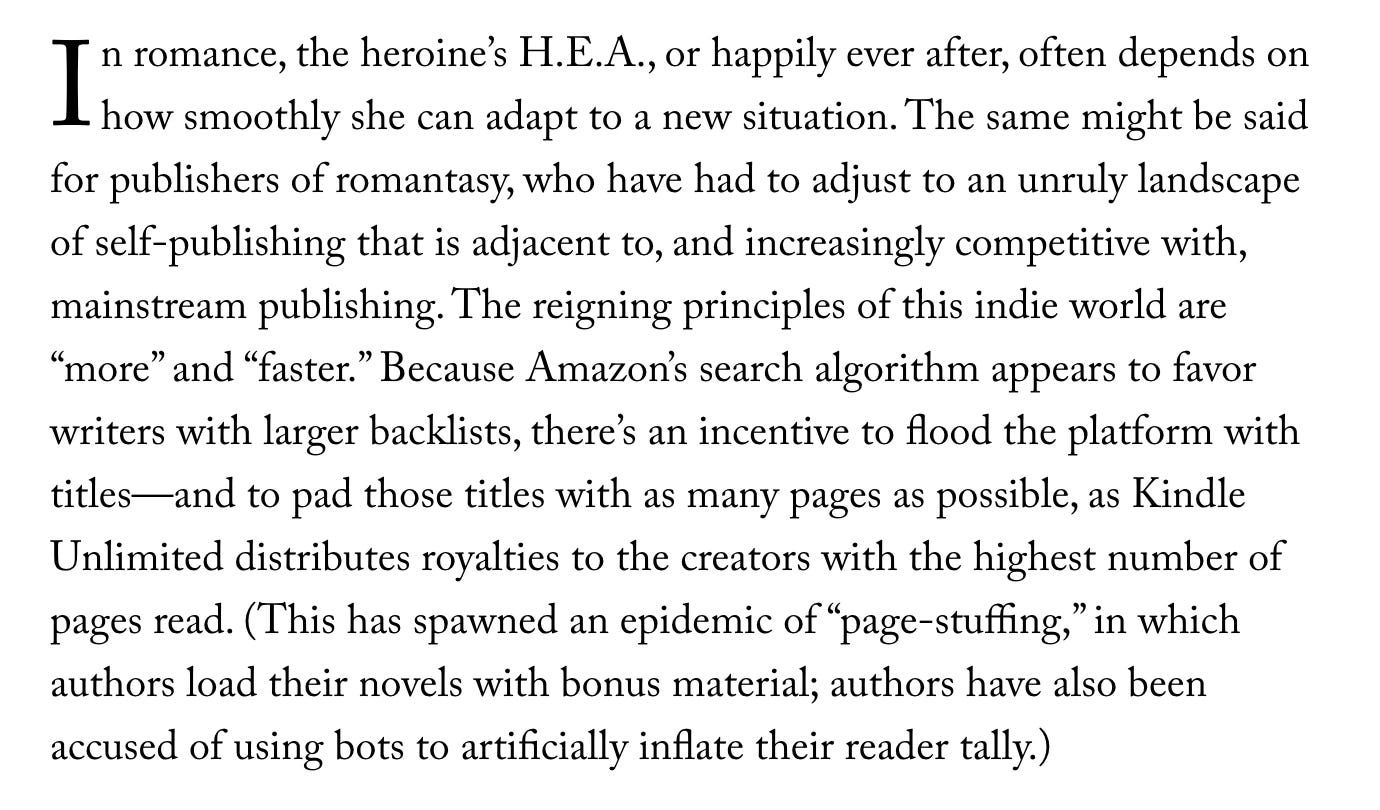I have three reading modes: work mode, pleasure mode, expansion-pack mode. Work mode sounds less fun than it actually is - it’s everything I read when I’m trying to learn from the greats. I’m reading analytically as well as for pleasure, I’m taking notes, I’m synthesising. Pleasure mode is self-explanatory, and expansion-pack mode is everything I read to stay informed, to educate myself or to remain curious. This is (almost) everything I read in January.
Books
As I’m gearing up for an intense few months of editing, January was mainly about pleasure, not work. My first book of the year was a re-read - Convenience Store Woman by Sayaka Murata. You probably know it, but if you don’t, it’s a novella about woman who works in a convenience store and who is utterly content with her life, but sensitive to the expectations other people project onto her. It’s odd and charming and quite funny. After I read Life Ceremony in December, I was craving more of her work and I knew this wouldn’t disappoint.
I then read Central Places by Delia Cai. I liked the premise - a newly-engaged, young woman returns to her hometown and grapples with a very tense family dynamic - but I struggled with the protagonist until she finally seemed to demonstrate some self-awareness. This is a book about growing up as much as it about race and class. The writing was good, the plot lacked a bit for me. But no regrets!
After that it was Heads of The Coloured People by Nafissa Thompson-Spires, a series of short stories exploring Black identity. I’ve had this collection for years and put it on a ‘read it NOW or give it away’ pile - and I’m so glad I did because it’s brilliant. It’s sharp, witty, funny and acerbic, whilst also being unbelievably creative in its form and structure. Will be re-reading again.
I read Recognising The Stranger by Isabella Hammad in one sitting and found it profoundly, heartbreakingly moving. This is a small book - eighty pages or so - of her delivery of the Edward W. Said lecture at Colombia University just a few days before 7 October 2023. With an additional afterword, Hammad interrogates the way we construct narratives of our lives and the world around us, neatly intertwining this with the Palestinian fight for freedom in the face of global abandonment. It’s one of those books you should just read, no convincing necessary. I borrowed a copy from a friend, and will need to buy my own now. It’s not an essay you read once.
pitch-perfect example of how the novelist can get to the heart of the matter better than a million argumentative articles. - Max Porter

Other:
I read the Guardian and Politico’s Playbook most mornings, and I subscribe to about twenty other newsletters and magazines as well - but it would be insane, not to mention boring, if I listed them all here. So I’ve gone for the standouts:
The December/January issue of New York Magazine, which slaps, as always. This issue featured an in-depth profile of Adrian Brody, the ‘diary’ of a stage mom, a really horrible blue-raspberry flavoured drug epidemic (and it’s not vapes) and also set the scenes of the New York mayoral race. My favourite read was the Adrian Brody profile by E. Alex Jung. His talent is obvious and undoubted, but he comes across as a man who takes himself unbelievably seriously and loves being listened to - a trait his family seemingly encourages. Part of the profile takes place in Brody’s childhood home and Jung’s last lines made me laugh: As he’s speaking, I look at his parents, who are completely rapt. They’re his audience tonight.
This New Yorker piece, Did a bestselling romantasy novelist steal another writer’s story? on the influences of author rights, TikTok, conservatism and trope-writing on the genre. An excellent piece by Katy Waldman. My main takeaway was how concerning it is that certain areas of publishing - including self-publishing - are rewarding writers for quantity rather than quality, leading to shit like ‘page-stuffing’ and AI writing (fucking HELL). To me this feels like an extension of the current state of the social media, which is all about endless repetitions of the same thing - a sentiment echoed by author Jenny Trout, who was quoted in this piece: “Authors are giving the people what they want, but it’s also like you’re reading the same book over and over again.”
It got me thinking about Ursula Le Guin’s 2014 National Book Foundation Medal
for Distinguished Contribution to American Letters acceptance speech (christ, what a terrible name), which I turn to when I’m in need of comfort. In it, she says:
Right now, we need writers who know the difference between production of a market commodity and the practice of an art. Developing written material to suit sales strategies in order to maximise corporate profit and advertising revenue is not the same thing as responsible book publishing or authorship.
I love what Le Guin says about responsible authorship, and while I don’t think we should moralise about what counts as ‘good’ writing, at the very least, shouldn’t it be a) your own and b) all about the work? The story? The art? Is that classist or snobby of me? Writing has never been profit-based for me, but then again, I’ve never needed it to be. Perhaps I would feel differently about this if it was my sole income and I had no other support. I don’t know.
Rhiannon Lucy Cosslett for the Guardian: What does Melania’s merciless hat tell us? Designers are suddenly eager to dress the Trumps. Fashion and politics have a long, collaborative history, and I enjoyed this opinion piece charting fashion houses’ pivot to the Trumps. I love the way she described Melania’s second inauguration outfit as ‘positively authoritarian’ compared to her first one, ‘Jackie O cosplay.’
Maria Callas’ wikipedia page. I haven’t see Maria, the film staring Angelia Jolie, yet. I’m not sure I will - that trailer didn’t sell it to me. But I was interested enough in the titular character to read her entire wiki page, and it was pretty enjoyable. The main takeaway for me was how difficult it is for critics to agree on anything at all. There’s a whole debate on whether Maria’s voice was strengthened or weakened by surgery and weight-loss, which was fascinating (and depressing) to read about.
Any thoughts/questions/concerns? Let me know in the comments!
A quick favour. I love writing these posts, and I intend to do them for free for as long as I can. If you enjoyed reading this, forward it to a friend (or three) who you think might like it too. It helps massively, because validation from strangers is truly the only thing that makes the horrors bearable for me.






